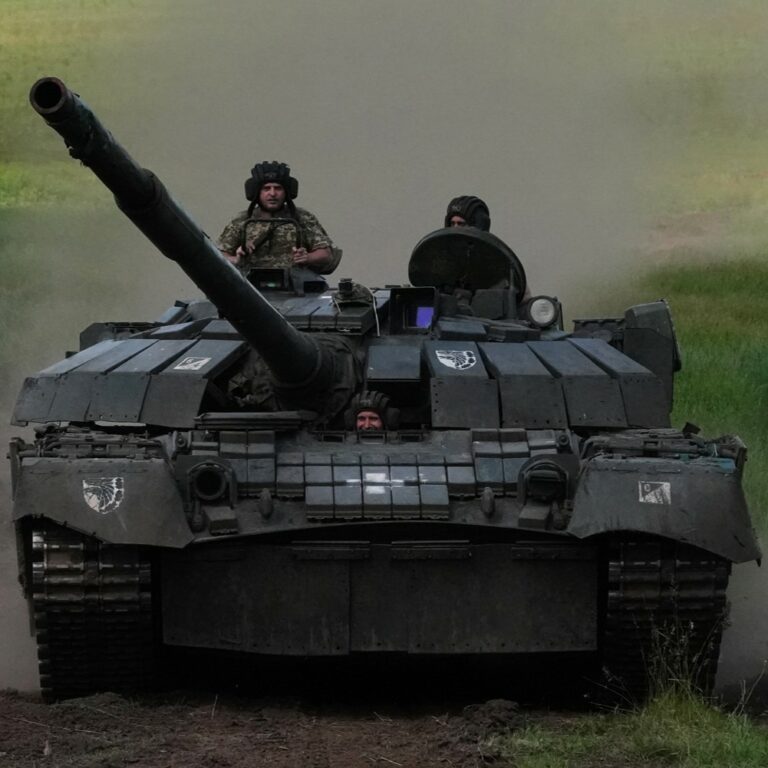
Despite the heavy sanctions and concerted efforts by Western powers to undermine Russia’s war machine, the aggressor nation continues to elude these restrictions and exploit loopholes, reinforcing its capacity to continue war. While many companies and individuals in the West still maintain ties with Russia, some of these connections involve direct complicity in war crimes. Furthermore, several governments, including Belarus, the UAE, Kyrgyzstan, China, India, and others, directly collaborate with Russia, raising concerns about their role in perpetuating the war.
According to the report by the KSE Institute, the vast majority of Russia’s contemporary military equipment relies heavily on Western technologies, especially from the U.S., the UK, Germany, the Netherlands, Japan, and Israel. In some instances, these components serve dual purposes, encompassing commercially available civilian applications used for military purposes. Their dualism makes them more challenging to restrict through export controls. At the same time, some industries financing the Russian war machine are not under sanctions at all.
Reflecting on decades of Russian belligerence, it is clear that the global community cannot afford to underestimate the threats posed by Russia and other authoritarian regimes. Instead, developing strategies that can disrupt even the most intricate support channels for the Russian economy and weapon production is essential. This pursuit is not just a matter of regional concern but a critical imperative for global security and stability.
The silent enablers: Western CNC machines fueling Russia’s war efforts
Computer Numerical Control (CNC) machines are the unsung heroes of military production, serving as the backbone of weapon manufacturing. The most common examples are turning and milling CNC machines, laser and plasma cutters, router CNC, etc. They represent an integral component of modern automation in civil and military production.

Examples of CNC machines.
Contrary to popular belief, there are no specialised military machines; many crucial arms components are crafted using these versatile CNCs, including beams, housings, nuts, bearings, and more. For example, nearly all precision metal-cutting equipment the Russian military uses originates in the West. CNCs serve various purposes in the military and defence sectors. They range from tiny, precise components in electronics and weapons to substantial structural parts in aircraft and vehicles. CNC machining enables the production of parts with precise measurements and intricate designs, meeting the high standards of these industries. Using CNC machining, military and defence companies can expedite production and save costs, resulting in quicker and improved outcomes.
Russia had acquired a substantial number of Western CNC machines before the full-scale invasion, enabling the production of weapon components. Even after the Western countries strengthened sanctions in 2022, the threshold is still exceptionally high, allowing many dual-use products essential to Russian weapon production to cross borders unimpeded. Furthermore, all CNC machines keep receiving servicing from their manufacturers, making them even more effective and long-lasting for Russia to continue the war.
According to research by the Economic Security Council of Ukraine (ESCU), Russia’s military production relies heavily on Western CNCs, with approximately 70% dependency (though the actual reliance might be higher). These machines are responsible for crafting numerous components to form the weapons used against Ukraine. For example, Russian military enterprises actively use foreign CNCs in their manufacturing processes, including producing Kalibr missiles. Since the beginning of the full-scale war, the aggressor state has manufactured over 700 missiles of this type that have already killed many Ukrainian civilians.
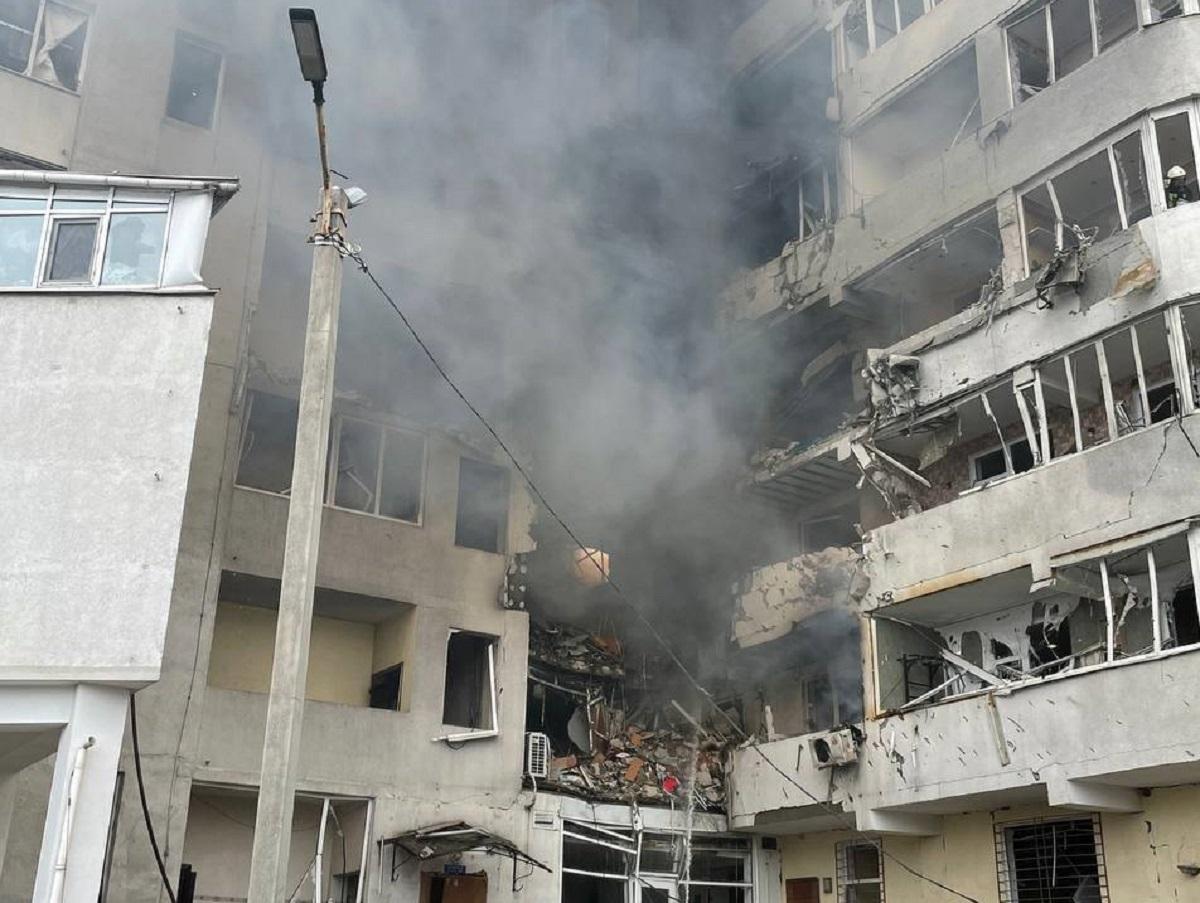
Results of Russian shelling with Kalibr missiles, Odesa, 23 April 2023.
While the CNC industry is critically essential, it tends to fly under the radar in economic reports and analyses, overshadowed by more prominent sectors. Given Russia’s 70% dependency on Western CNCs, disrupting it could significantly reduce the efficiency of the Russian military complex. To achieve this, experts from the Ukrainian NGO PR Army and ESCU recommend several crucial steps:
1. Termination of servicing and software updates. Cease servicing and providing software updates for CNC machines sold with export control violations.
2. Expansion of export control categories. Broaden the scope of export control regulations to cover a wide range of components and tools used in weapons production, including all types of CNC machines and microchips.
3. Corporate accountability and public pressure. Apply public pressure on companies directly engaging with Russia or its subsidiaries, emphasising responsibility for engaging in war efforts and war crimes.
4. Stricter responsibility for dual-use goods. Introduce stringent penalties for producers of dual-use goods and tools, including criminal liability for CEOs and compliance officers, as well as imposing fines for export control violations. Recognise dual-use products’ strategic significance for national security.
5. Rigorous compliance measures. Implement comprehensive preliminary screening of agreements to verify intermediary-distributor relationships and final buyers. Mandate CNC manufacturers to adhere to strict internal compliance standards, with violations leading to severe sanctions and potential licence revocation.
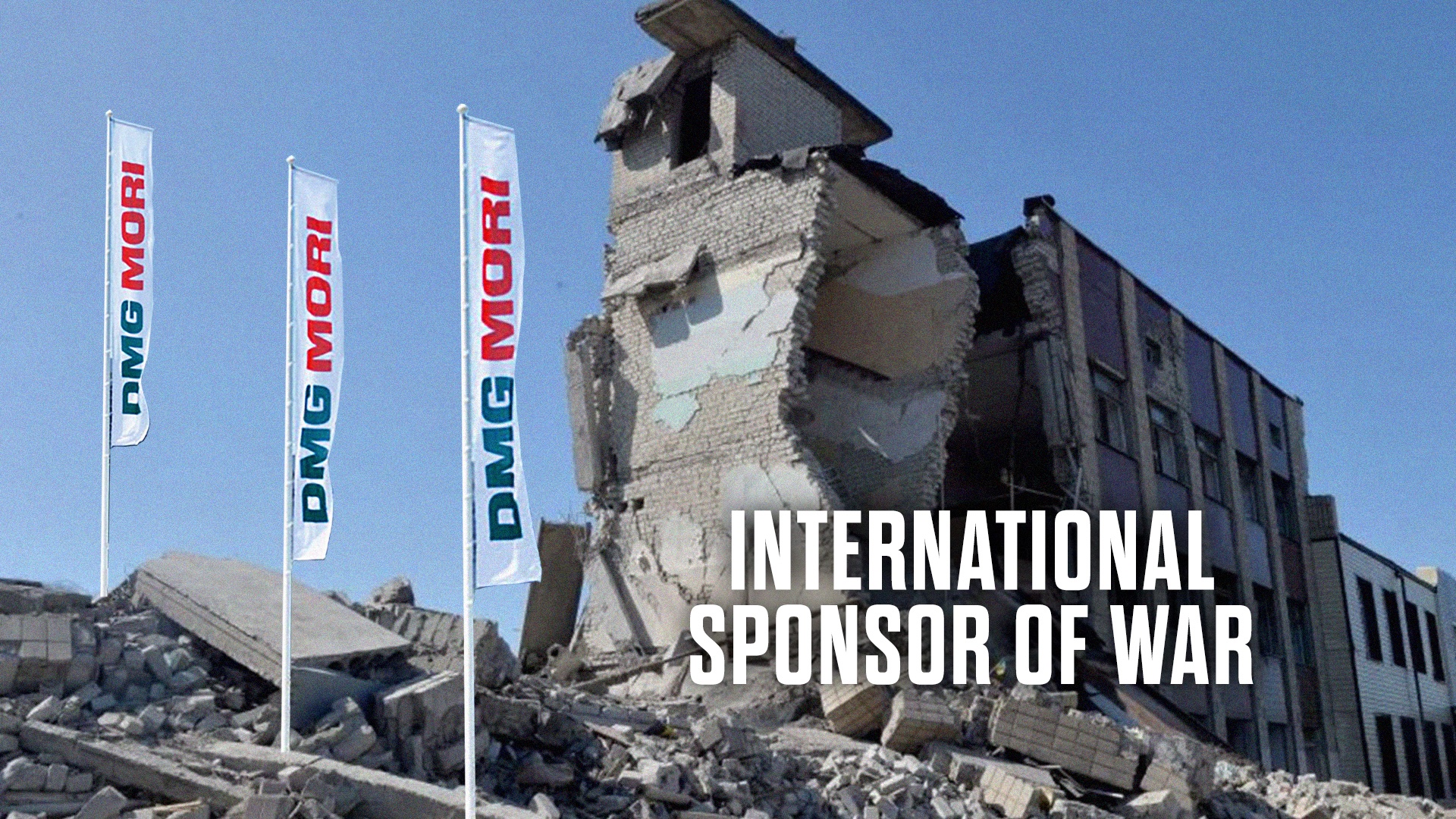
DMG Mori is one of the biggest manufacturers of CNC machines, still operating in Russia. Source: Ukraine Solidarity Project.
To give a simple comparison: if ZARA leaves the Russian market, it would cut the amount of taxes in Russia. But if a CNC manufacturer, GMG Mori, were to terminate maintenance and support of their machines in Russian military plants, it would severely undermine Russia’s war-making potential. The ultimate goal is to curtail Russia’s capacity to produce advanced weaponry, thereby reducing its ability to wage war and pose a threat to Europe and the world.
How Russia evades sanctions through loopholes and so-called neutral countries
While sanctions have impacted Russia’s economy, they have not been sufficiently robust to halt the ongoing war. Russia leverages “neutral” countries to sustain its aggressive war efforts. Countries such as Iran, Turkey, Belarus, Switzerland, Armenia, Georgia, Kazakhstan, Kyrgyzstan, and the UAE are locations where Russian intermediaries operate or where Russia sources materials. These countries might officially maintain a neutral stance in international conflicts or even be a part of a Western coalition, but, in practice, they allow activities that directly or indirectly support Russia’s military efforts.
For example, since the beginning of the all-out invasion of Ukraine, Russia has increased the worth of imported microelectronics to $2,45 billion compared to $1,8 billion in 2021. The International Working Group on Russian Sanctions identified at least 1,057 foreign components produced by 155 companies used in Russian weapons.
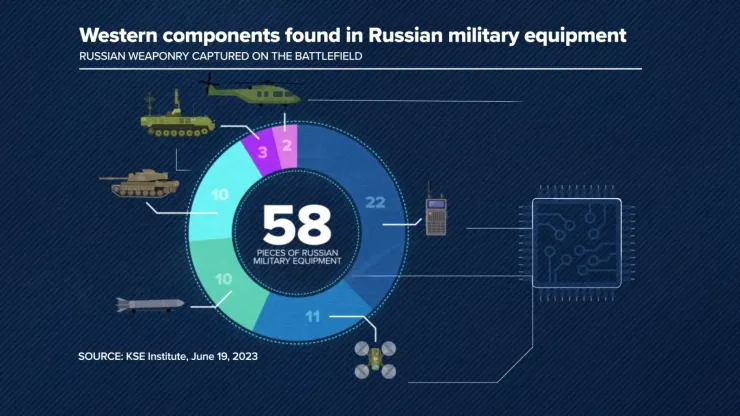
Let’s take Germany as an example. While the significant 47% reduction in German imports from Russia demonstrates strong efforts to limit Putin’s ability to wage war, a substantial increase in trade with Russia’s neighbouring countries is a concerning trend. This raises valid concerns that sanctioned items could potentially find their way into the aggressor country. Following Russia’s invasion of Ukraine, German exports to Kyrgyzstan skyrocketed by 994%, reaching 170 million euros. Similar increases were observed in trade with other neighbouring states: 92% to Georgia, 136% to Kazakhstan, 172% to Armenia, and 154% to Tajikistan. Bonded by membership in the Russia-led Eurasian Economic Union, Armenia, Kazakhstan, and Kyrgyzstan share a common customs regime with Moscow, which enables the re-sale of sanctioned goods to Russia without further controls and customs duties.
Furthermore, there was a 37% increase in German trade with Turkey. This could suggest an expanding role for Turkey in assisting Moscow in evading European sanctions, a stance that official Ankara has refrained from taking.
How Belarus helps Russia to continue the war
Belarus actively supports Russia’s war against Ukraine, involving forcible deportations, hosting nuclear placements, and missile launches from its territory. Additionally, Belarus serves as an exporter of sanctioned goods. Despite extensive sanctions against Russia’s exports, the aggressor has found effective ways to bypass them and continue the war, with Belarus being a major loophole. This means that virtually everything Belarus imports, including microchips, aviation components, computers, and battlefield equipment, ultimately ends up in Russia.
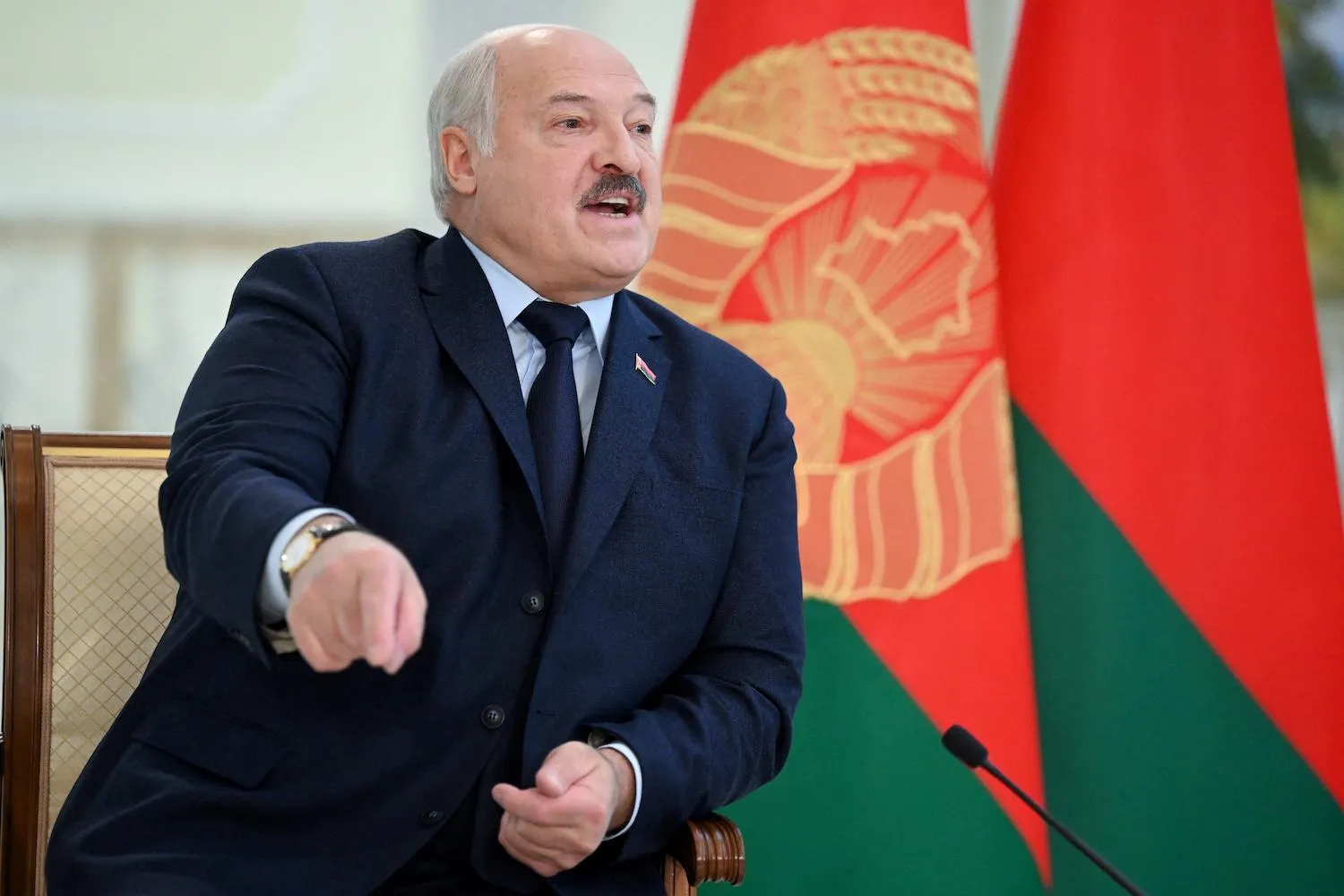
Belarusian President Aleksandr Lukashenko on 16 February 2023. Natalia Kolesnikova/AFP/Getty Images
Only on July 27, 2023, after 1.5 years of the full-scale war, the European Union reached a consensus to ban exporting battlefield equipment and aviation parts to Belarus. This embargo specifically targeted “dual-use battlefield and aviation goods” and included a blacklist of 38 individuals and 3 entities.
Experts assert that Belarus heavily relies on Russia and serves the Kremlin’s needs in various ways. Imposing severe sanctions on Belarus would place additional restrictions on Russia, making the ongoing war more challenging for them.
How Switzerland helps Russia evade sanctions
Switzerland condemned Russian aggression and supported Ukraine, yet for years, the country has been the destination of choice for Russian oligarchs and corrupt officials to hide their stolen money. Russia can buy components for weapons and import dual-use machine tools through Swiss banks to make missiles. For example, Swiss company SIPAVAG AG, which produces parts for diesel cranes for the Russian Navy, supplied engine parts for Kolomensky Zavod JSC. A Russian citizen, Tatyana Nemtseva, heads the company. In February 2023, she became the manager and sole shareholder of another Swiss company — INT Trade GmbH.
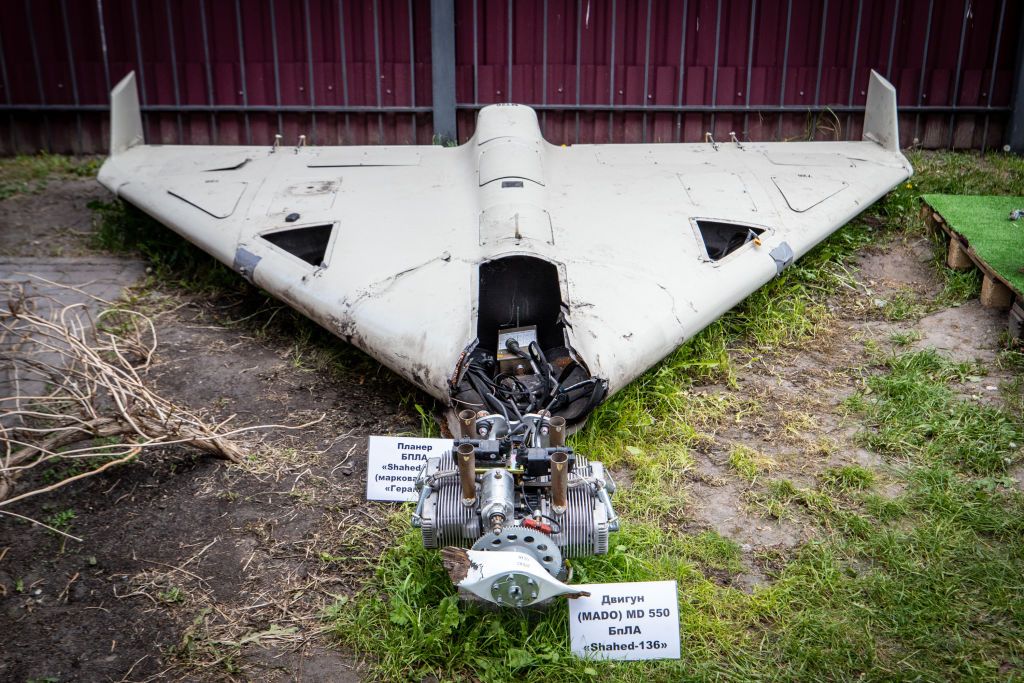
Remains of an Iranian Shahed 136 kamikaze drone used to attack Kyiv on May 122023. Photo: Oleksii Samsonov /Getty Images
On July 18, U.S. The Helsinki Commission held a hearing regarding Switzerland’s double play, where Olena Tregub, Secretary General of the Independent Defense Anti-Corruption Committee (NAKO), presented her investigation on Switzerland’s sanction evasion:
— The principle of neutrality does not allow Switzerland to supply weapons to help Ukraine. However, this principle does not prevent its companies from supplying components for missiles and drones for Russia to commit genocide and war crimes in Ukraine. Switzerland is at the top of Europe regarding the number of components found in Russian weapons. If we are talking about the Iranian Shaheds, then Switzerland is in the 1st place in Europe in terms of the number of components. Switzerland is not the only country that cannot solve the issue of stopping the supply of components to Russia. However, other countries at least supply weapons to Ukraine.
China’s role in Russia’s war efforts
The U.S. and Europe are facing a looming security threat in the form of China, a threat potentially more dangerous than Russia. Failing to address this security concern promptly may result in Western democracies expending significant resources and finances when dealing with a potential Taiwan invasion.
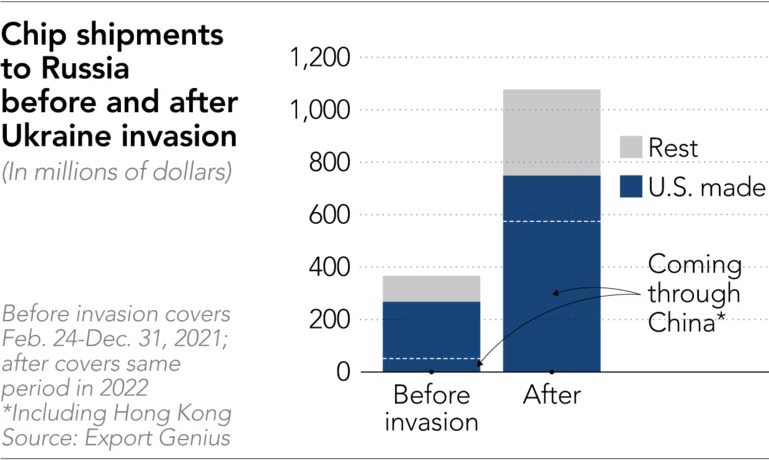
China’s role in supporting Russia’s war efforts in Ukraine extends beyond mere rhetoric. One significant way China aids Russia is by supplying drones and a wide array of military equipment that falls under non-lethal gear, including medical kits, meal kits, and body armour. This assistance allows Russia to maintain its military efforts. Additionally, China’s contribution to Russia’s war machine includes providing gunpowder used in artillery shells and enforcing the capabilities of the Russian army. China’s adeptness at avoiding sanctions makes this support even more concerning, making it a key enabler of Russia’s ongoing aggression in Ukraine.
France has raised concerns about China’s non-lethal military support to Russia. According to a CNN report on July 21, French officials have indicated that China is supplying Russia with items such as helmets, armour, and dual-use technologies. Emmanuel Bonne, an adviser to French President Emmanuel Macron, informed CNN that Beijing is significantly bolstering Russia’s military capabilities.
The Western nations are currently grappling with how to approach China, often apprehensive about the prospect of escalation. However, it’s essential to recognise that this war’s resolution may only be elusive if China is compelled to cease assisting Russia. Andrew Michta, Dean of the College of International and Security Studies at Marshall Center comments China’s role in hybrid war:
— The reality is that Russia and China have been waging a hybrid war against democracies, and they are ready to escalate to regular war. They know what they want: Russia wants to revise the post-Cold War settlement in its favour. China wants to replace the U.S. as the leader. It’s time we realise that the 30 years of globalisation, offshoring, and, most of all, the unfettered access China and Russia have had to every level of our societies has corrupted and weakened the West. Western policy currently allows China to steal intellectual property and extort Western technology and data in exchange for market access. If we continue on this trajectory, our enemies will likely prevail.
A study by the Expert Group on Russian Sanctions unveiled that 67% of components used in three drone models employed by Russia in attacks against Ukraine originate in China, with 17% passing through Hong Kong. The study further identified parts sourced from countries including Japan, South Korea, Switzerland, and others, including processors, microcircuits, and transistors. The accessibility of many drone components through open platforms poses a considerable challenge to regulatory control.
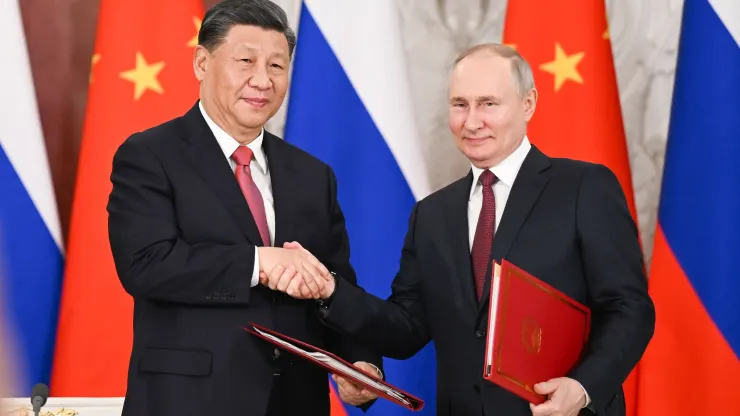
Source: Xie Huanchi | Xinhua News Agency | Getty Images
When Western sanctions first targeted Russian defence firms in 2014, Russia wasted no time devising strategies to avoid these restrictions. By 2022, Russia was well-prepared to face and circumvent sanctions, especially those within the military-industrial complex. Anton Mykytyuk, an expert at the Economic Security Council of Ukraine commented for Speka Media:
— How does this work? The primary method is the creation of new companies that have nothing to do with the military-industrial complex. For example, in China, a microelectronics company is registered under the name of a local or even a Russian citizen. This company buys chips or equipment and sends them to Russia, passing them through 3-4 intermediaries until the equipment arrives at a military plant. Of course, all these intermediaries are not random people.
What can be done to close sanction loopholes?
Despite the complications in tracking down sanction loopholes, there are cases of successful investigations and prosecutions for helping Russia. For instance, nine employees of Ommic, France’s largest semiconductor manufacturer, are facing charges related to the illicit export of sensitive technology valued at $13 million to Russia and China. Among these individuals, four company representatives were formally placed under investigation in March. It is believed that they played a role in smuggling gallium nitride chips, which have wide-ranging applications, to Russian state-owned entities through routes involving China, India, Turkey, and Lithuania.

At the heart of Ommic's activities, GaN technology, which enables phenomenal power gains in semiconductors, is of strategic importance because it is used in particular in electronic warfare systems (Illustration). IP3/Vincent Isore
Western governments need to take a broader approach to address this issue effectively. They must extend their efforts beyond imposing sanctions on Russia and its immediate partners.
1. Expanding sanctions efforts. Instead of concentrating solely on Russia, Western governments should consider other nations and entities indirectly aiding Russia’s military production, such as Kyrgyzstan, Kazakhstan, Georgia, Armenia, Turkey, the UAE, and China. These entities include companies, individuals and countries that, intentionally or unintentionally, facilitate the flow of crucial military components to Russia.
2. Sanctions imposed on Belarus must mirror those directed at Russia regarding export control, as these two countries share striking similarities. Anything that enters Belarusian territory effectively gains access to Russia. It’s worth noting that sanctions on Belarus are currently less stringent than on Russia, primarily because the Belarusian army is not attacking Ukraine directly. Achieving a harmonised approach to sanctions between these countries is crucial to ensure the effectiveness of export controls and prevent sanctioned items from inadvertently aiding Russia’s war efforts.
3. Addressing financial loopholes that enable Russia to access the materials for military production. Some countries act as intermediaries, where funds are transferred or processed to reach Russia ultimately. Western governments must take steps to address these financial loopholes. They need to track and monitor financial transactions more closely to ensure that funds aren’t being used to procure military components for Russia, even when they pass through neutral countries.
4. Better export controls — despite existing export controls meant to restrict the flow of sensitive military materials to Russia, there are gaps in the regulatory framework. This implies that, despite these controls, Russia can acquire the materials it needs for military production. Western governments must identify these gaps and take measures to plug them, making it more challenging for Russia to source these components.
5. Better control of goods in transit. Restrictions on Russian and Belarusian road transport entering the EU were only imposed in the autumn of 2023. This suggests that for over 1.5 years of the full-scale war, Russia’s allies had the opportunity to order goods from Europe, which would transit through Russia, potentially enabling the aggressor state to utilise these goods. Therefore, rigorous and comprehensive transit control measures are imperative at all levels to prevent inadvertently aiding Russia in obtaining European technologies and other products.
Export controls and enforcement of sanctions are more than just numbers; they are essential for preventing authoritarian regimes like Russia from obtaining critical technology.
Unsanctioned Industries Financing Russia
The United States and its European counterparts rely heavily on Russian nuclear fuel and compounds, primarily used to power civilian nuclear reactors. The West has been reluctant to target nuclear exports, so the industry is still not under sanctions, as well as Rosatom, a state-owned Russian atomic energy corporation that directly finances the Russian military.
According to the U.S. Energy Information Administration, Russia supplied the U.S. nuclear industry with about 12% of its uranium in 2022. Europe reported getting about 17% of its uranium from Russia in the same year. This heavy reliance on Russian uranium imports is concerning, highlighting the need for a diversified and secure fuel supply.
Importing nuclear products from Russia exposes Western nations to energy supply and security vulnerabilities. The consequences could be significant if Russia were to disrupt or halt these supplies for geopolitical reasons. The energy sector’s reliance on these imports may become even more pronounced as countries intensify efforts to increase emissions-free electricity production, a critical component of combating climate change.
“The war in Ukraine has made it abundantly clear we cannot be at the whims of Russia for our fuel supply,” said Representative Jeff Duncan, the committee chair. “It should be a bipartisan, national security objective to wean the United States industry off Russian uranium imports.”
Some European countries are reducing their dependence on Russian uranium. Sweden refused to buy Russian nuclear fuel early in the war in Ukraine. Finland cancelled a problematic deal with Rosatom for a new nuclear power plant and signed agreements with other suppliers. The Czech Republic is transitioning to non-Russian fuel for its nuclear power plant, and Slovakia and Bulgaria are exploring alternative suppliers to Tvel.
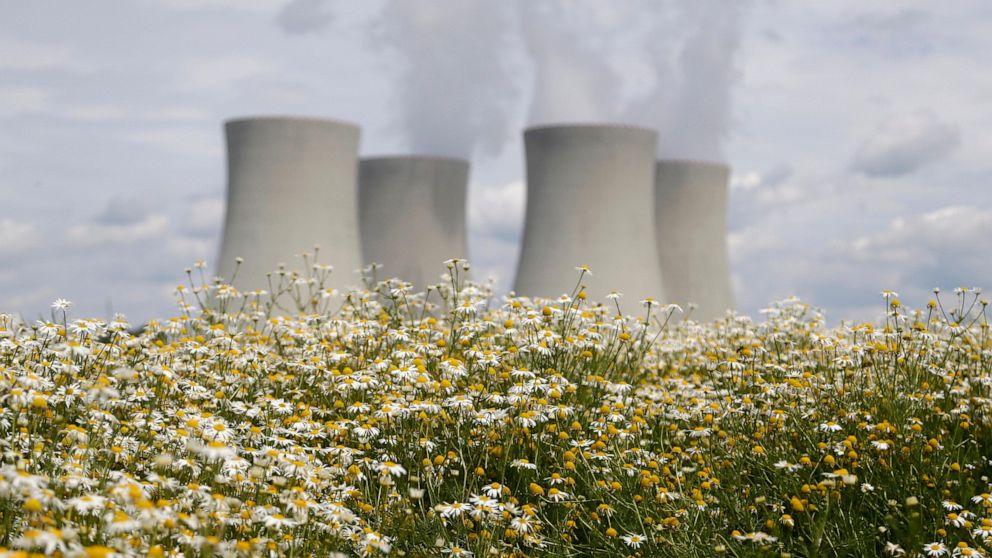
A power plant in the Czech Republic. Source: AP Photo/Petr David Josek, File
To mitigate these concerns and enhance energy security, experts from the Ukrainian NGO PR Army, ESCU, and KSE Institute recommend several steps:
– Western countries should diversify suppliers of nuclear compounds and products to reduce their reliance on Russian imports. Strengthening partnerships with uranium-rich nations and encouraging domestic production are potential strategies.
– Policymakers and regulatory bodies should review and potentially tighten the regulations governing the import of nuclear materials, taking into account national security considerations.
– Promoting renewable energy and increasing investments in this industry can help reduce reliance on nuclear power and, by extension, nuclear imports.
Addressing the continued importation of nuclear products from Russia is crucial for both national security and energy resilience in Western countries. By diversifying supply sources and bolstering regulations, these nations can mitigate risks and ensure a stable energy future.
Russian energy industry as an engine of war crimes
The Kremlin had invested decades and billions of dollars in establishing a foothold in the Western energy market. Through tactics including price manipulation, corruption, and the development of non-profitable pipelines, Russia had become a dominant player in the EU’s oil and gas sector. However, the issue wasn’t merely about revenue but political influence. Russia’s provision of affordable energy supplies had been a means of wielding political control, a strategy that had been unfolding for over half a century. Russia destroyed this system rapidly by starting a full-scale invasion of Ukraine.
In less than a year, the German government, a staunch advocate of Russian energy resources, completely abandoned its reliance on Russian supplies. Germany implemented measures that significantly strained consumers and businesses to safeguard its economy. Germany is a prime example of rapid change, but it also highlights the failure to predict threats adequately. Several Eastern European nations, including Poland, had long warned other EU members about the risks associated with Russian energy supplies well before Russia started its full-scale war against Ukraine. These Eastern European countries demonstrated greater preparedness to discontinue Russian supplies than their Western counterparts.
Russian gas and oil had long been linked to Russian corruption, exemplified by Hungary, where 50% of all gas imports in 2022 originated from Russia. Hungary earned the dubious distinction of being recognised as the most corrupt EU member state by Transparency International.
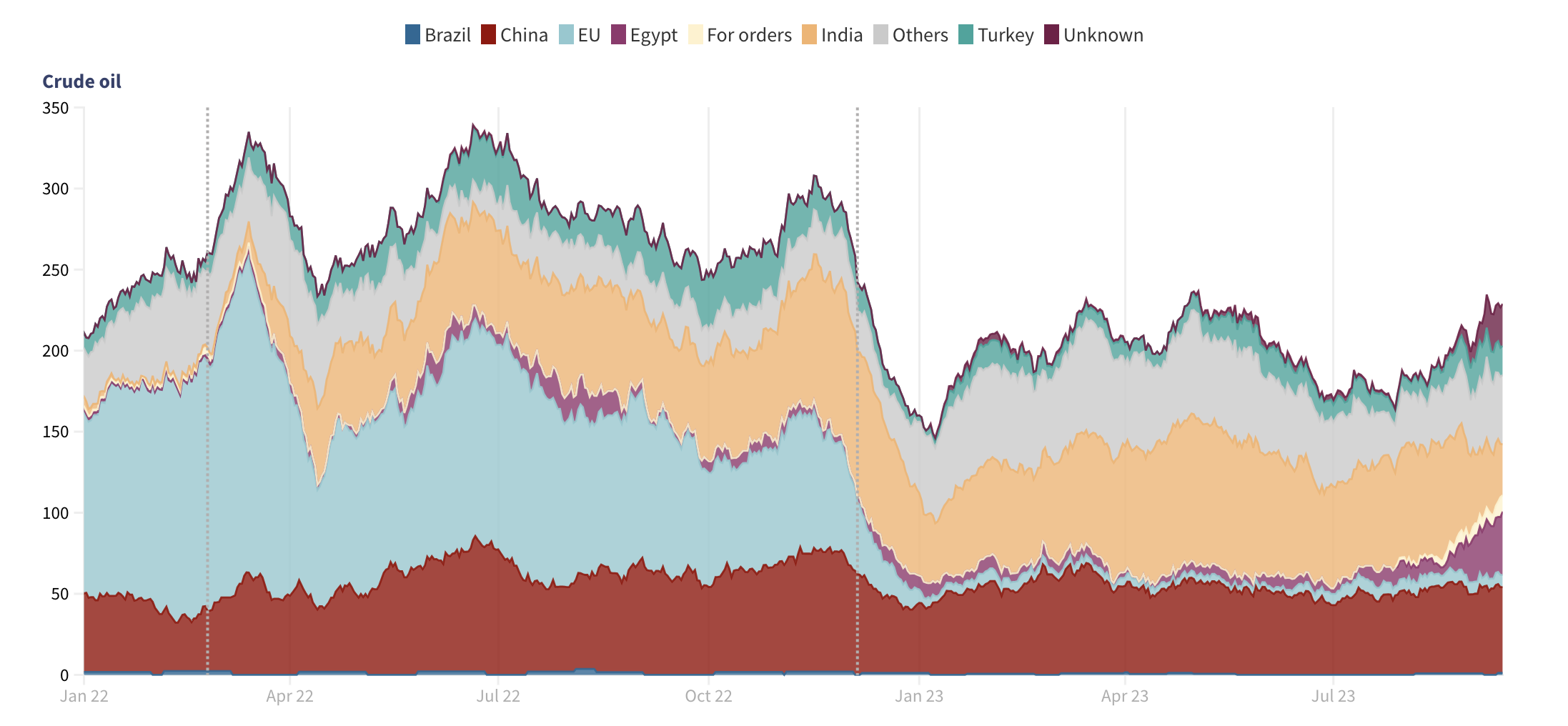
Source: Centre for Research on Energy and Clean Air (CREA)
The EU’s decision to reject Russian energy supplies, put an oil ban, and implement price cap mechanisms have all had profound repercussions on Russia’s economy. In January 2023, Russia’s budget income was 35% lower than the previous year, primarily due to reduced oil and gas exports. Nevertheless, Moscow continues to fund the war against Ukraine from this industry, propped up by weak enforcement of the sanctions and selling resources to China and India at substantial discounts.
Here are the most crucial steps that the democratic world should take to reduce Russia’s influence in the energy sector and cut its ability to earn more money for the war:
1. Lowering the oil price cap. On December 5, 2022, the EU and the UK took a significant step by banning crude oil imports from Russia. As the aggressor country faces a drop in tax income from other sources due to sanctions and a collapse in revenue from gas exports, its dependence on oil revenue has increased. Being a toxic geopolitical partner and while dealing with existing oil bans and price caps, Russia needs to persuade other buyers by offering steeper discounts. Lowering the price cap on Russian oil is a way to cut its income from the energy industry.
— The most important way to cut Russia’s export revenues further will be to drive down the oil price cap. The Russian government collects taxes on the difference between oil production and transportation costs and the selling price, so lowering the price cap to a level close to the cost of production will deprive the government of the ability to fund the war from oil revenue. Our recommended level is $25-35, which would still be well above production and transportation costs, incentivising continued supply while significantly cutting Russia’s revenues.
Centre for Research on Energy and Clean Air (CREA)
2. Strict sanction enforcement and oil price cap implementation. Enforcing sanctions and controlling their implementation is crucial because Russia continues financing the war if the sanctions are solely on paper. To ensure a meaningful impact of sanctions, Russia must face financial constraints. If compliance with the oil price cap remains weak, it sends a concerning signal to the global community that sanctions may lack the teeth needed to deter rogue states. The importance of robust enforcement cannot be overstated, as it affects Russia’s actions and sets a precedent for other nations like Iran, North Korea, and China. A resolute stance on enforcement is essential to ensure the efficacy of sanctions and uphold international norms.
3. Seeking energy alternatives. The rejection of Russian energy supplies pushed Europe to prepare for the green transition and invest in alternative energy. Despite Moscow’s role in provoking the energy crisis, global investment in renewable energy surpassed $1 trillion in 2022 as renewables became increasingly competitive. This shift resulted in record-breaking electricity generation from solar and wind power plants, which should be perceived as a new normal.
Sanction enforcement as a way to stop Russian war crimes
The actions of global corporations, tech companies, and manufacturers cannot be viewed in isolation from politics or geopolitics. When a company deliberately sells its technology to Russia or allows it to end up there due to poor export controls, it has far-reaching consequences. These technologies are integrated into Russian missiles that kill Ukrainian civilians or help the aggressor country construct advanced weaponry, enabling them to prolong the war. It’s important to highlight that there’s no assurance that Russia will cease its military activities in Ukraine. There have been instances where Russian weapons entered the territory of NATO countries with no repercussions. In one incident, a missile killed an individual in Poland; in another case, a drone crashed in Romania, both of which are NATO member states.
The ongoing Russian invasion of Ukraine has resulted in a staggering 100,000 documented war crimes and humanitarian crises. Despite international pressure, Russia has persistently flouted international agreements and laws. It also refuses to cooperate on matters related to the laws of war created to protect the civilian population. Key issues such as the repatriation of forcibly deported Ukrainians, the release of detained Ukrainian civilians and prisoners of war, and the provision of fundamental freedoms to people in occupied areas have all been met with indifference by Russia. There is no indication that Russia plans to alter its approach.
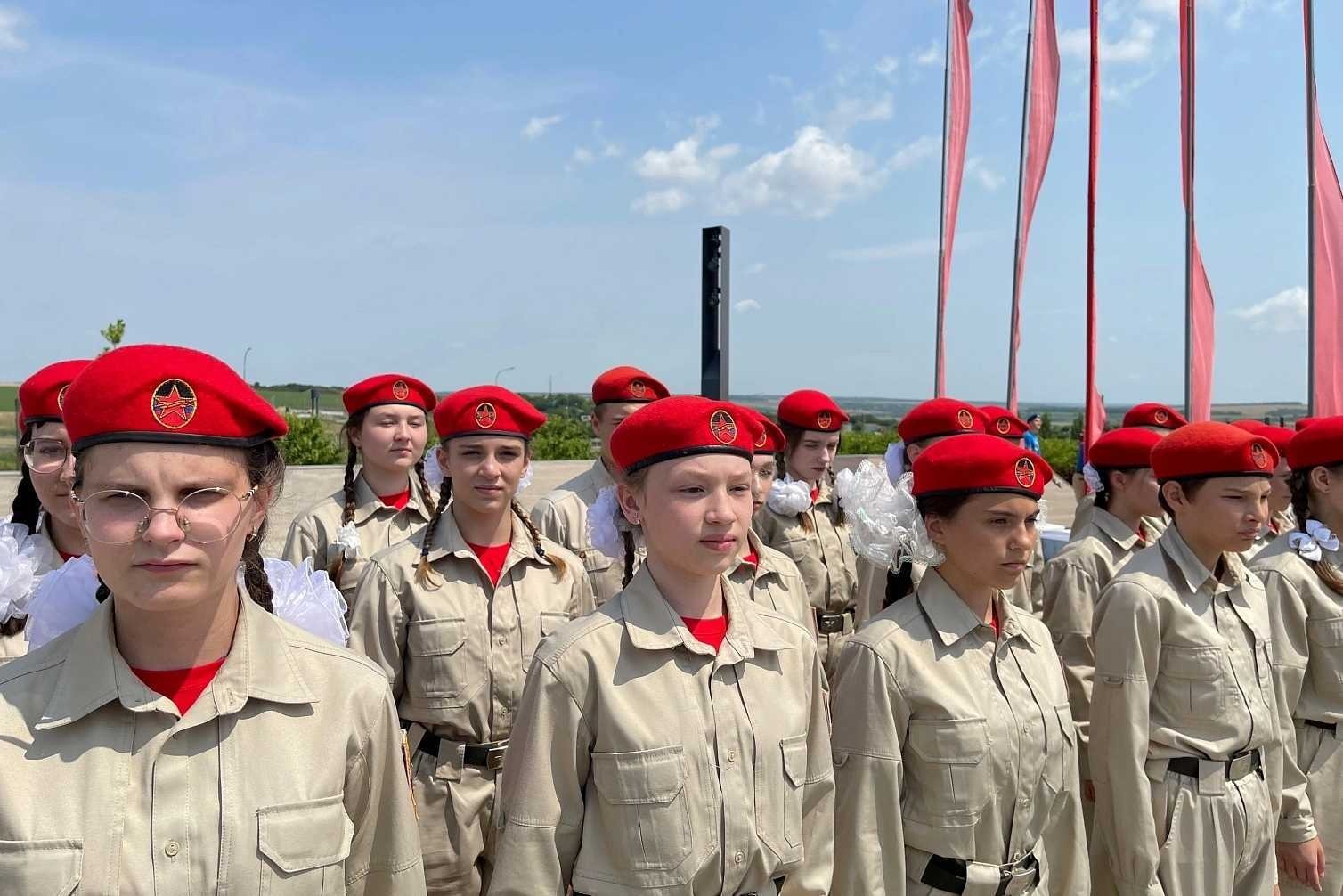
Deported Ukrainian children from Donetsk region in Volgograd, undergoing militarisation. Source of the photo: Russian occupiers
To address these grave violations of international law and exert influence over Russia’s political and geopolitical behaviour, it is essential to weaken Russia’s war machine by effectively implementing sanctions, bolstering export controls, enforcing corporate accountability, and exerting pressure on Russian allies and so-called neutral countries.
War crimes will persist as long as Russia refuses to acknowledge its defeat. While sanctions may not produce immediate results, they are crucial for ending the Russian war of attrition against Ukraine sooner and limiting possibilities for the Kremlin to wage subsequent wars. Enforcing sanctions is not merely a political manoeuvre but a humanitarian imperative. It offers a tangible means to diminish Russia’s war capabilities and compel the Kremlin to actively work toward ending the invasion.

